By Gerald Mbanda
Participants compete during the Beijing Marathon 2025 in Beijing, capital of China, Nov. 2, 2025. (Xinhua/Zhang Chenlin)
Sports have increasingly become a bridge connecting people, nations, and cultures across the globe. Among the various forms of cultural exchange, sports tourismhas emerged as a significant platform promoting understanding and friendship. The recent Beijing Marathon, which brought together more than 4,700 participants including athletes from several African countries, stands as a testament to how sporting events can strengthen ties between China and Africa’s youth.
This year’s marathon witnessed outstanding performances by Ethiopian and Kenyan athletes, who once again demonstrated their dominance in long-distance running. Their victories not only highlighted the athletic excellence of Africa but also underscored the growing spirit of cooperation and friendship between the two regions. The event went beyond competition, offering an avenue for cultural exchange, mutual learning, and people-to-people connection.
The Beijing Marathon has developed into one of Asia’s most recognized sporting events, attracting elite and amateur runners from around the world. For many participants, the race is not merely a test of physical endurance but also a celebration of global unity. As thousands of runners took to Beijing’s streets, they shared experiences, traditions, and values that transcend national boundaries. Through such shared moments, participants from China and Africa were able to foster deeper mutual understanding and respect.
Beyond the athletic achievements, the marathon was a vibrant display of cultural diversity. The event featured traditional Chinese performances and public celebrations that created an atmosphere of festivity and inclusion. African runners, in turn, contributed by sharing their own cultures through music, dance, and storytelling. Such interactions, though brief, serve as meaningful cultural exchanges that nurture friendship and strengthen interpersonal bonds between peoples of different nations.
Sports tourism has increasingly become an important element of China-Africa cooperation, complementing existing partnerships in trade, education, infrastructure, and technology. As a form of people-to-people diplomacy, sports tourism allows young people from both regions to interact directly, exchange ideas, and form long-lasting relationships. Running side by side, Chinese and African athletes learn not only about each other’s cultures but also about shared values such as perseverance, teamwork, and dedication to excellence.
The marathon experience also offered participants opportunities to explore Beijing’s rich history and culture. African athletes visited local landmarks and interacted with Chinese fans and volunteers, while local participants expressed admiration for the resilience and professionalism of their African counterparts. These interactions help dispel misconceptions, encourage mutual understanding, and promote an appreciation of diversity.
The broader context of the China-Africa partnershipreveals that sports have become a growing dimension of collaboration. China has contributed to the construction of sports infrastructure in various African countries and supported youth development programs aimed at nurturing athletic talent. In return, African athletes have shared their experience and skill, helping to enrich China’s sports culture and inspire its growing community of runners. The success of Ethiopian and Kenyan athletes in Beijing therefore symbolizes more than victory—it represents the spirit of friendship and global cooperation.
Sports tourism also brings tangible economic and social benefits. For host cities like Beijing, international events such as the marathon enhance tourism, support local businesses, and promote a positive global image. For African participants and their home countries, these events raise visibility and foster pride, while inspiring younger generations to embrace sports and healthy lifestyles. Moreover, international exposure allows athletes to build professional networks and access new opportunities that contribute to their personal and athletic growth.
Perhaps the greatest value of such events lies in their power to unite. At a time when the world faces multiple challenges, sports remain a universal language of peace, respect, and solidarity. When athletes from Nairobi, Addis Ababa, and Beijing stand together at the starting line, they embody a collective pursuit that transcends politics and geography. Their shared experience illustrates that cooperation, understanding, and friendship are built not only through dialogue but also through shared action and endurance.
The 2025 Beijing Marathon will be remembered not only for its athletic achievements but also for its contribution to global understanding. As the event concluded, what remained was not just a list of winners but a renewed spirit of unity between the youth of China and Africa. The marathon demonstrated how sports tourism can serve as a meaningful tool for diplomacy, fostering cooperation and building bridges across continents.
Through such initiatives, China and Africa continue to strengthen their relationship on a foundation of shared values, mutual respect, and friendship. The Beijing Marathon has shown that in the race toward global cooperation, sports can lead the way — one step, one connection, and one friendship at a time.
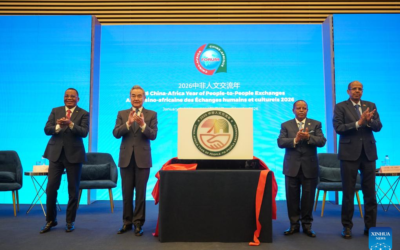
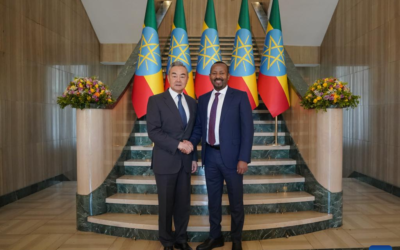
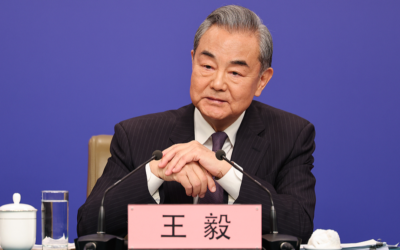
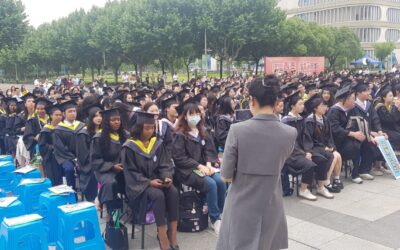

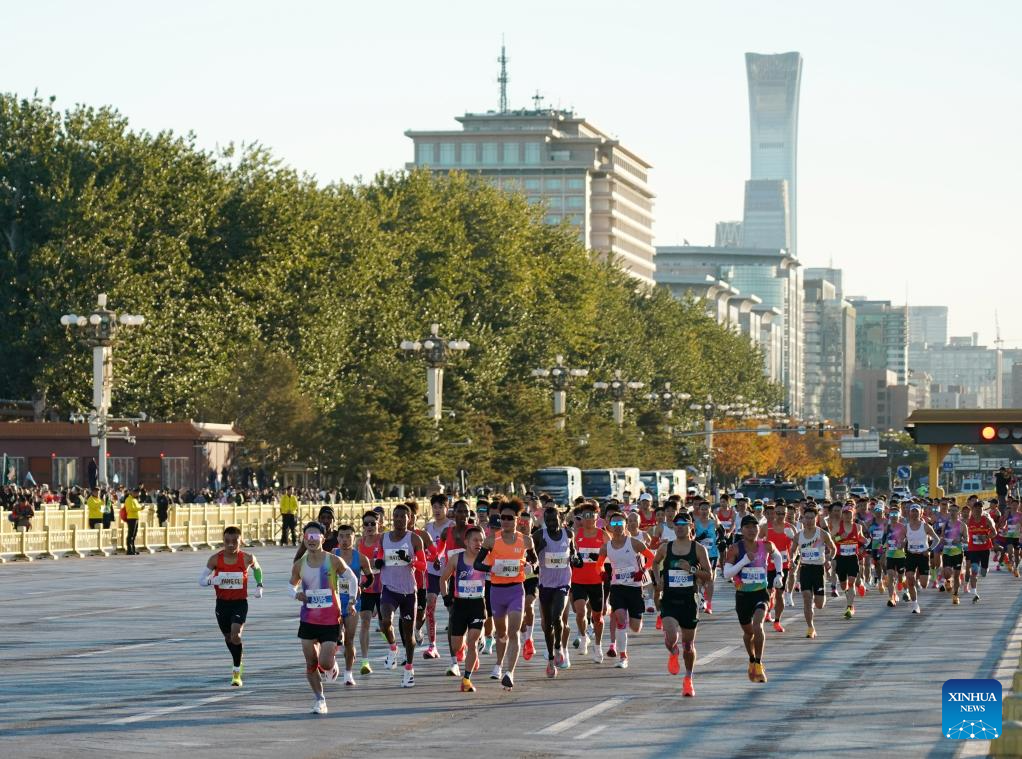
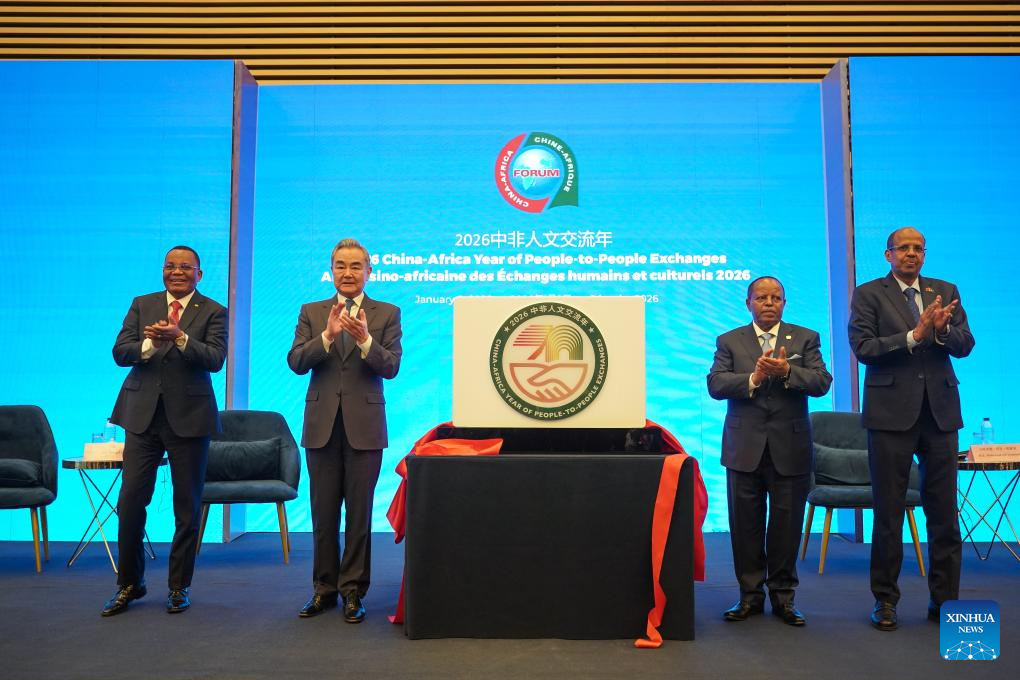
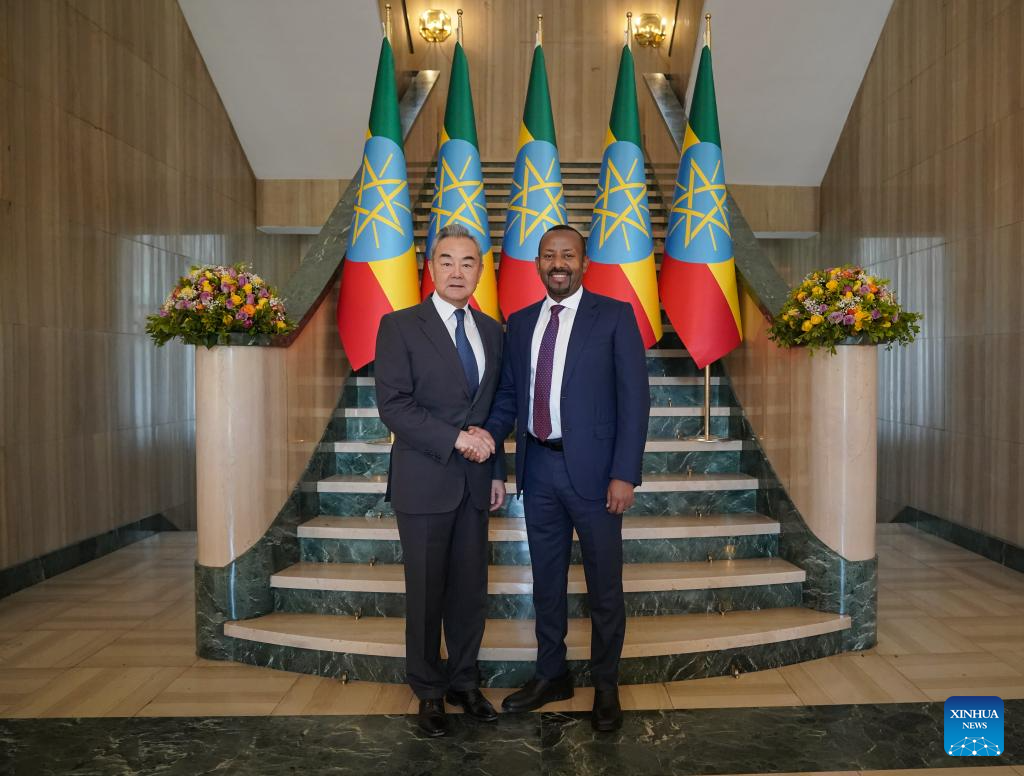
Jili888, legit ba or not? That’s the question! Need to do my research first before putting any money in. Anyone have any insights? Find out for yourselves: jili888legitornot
Ja, Wazbee bietet ein Echtgeld Casino Erlebnis, bei dem
Spieler echtes Geld setzen und gewinnen können. Viele schätzen die breite Spielauswahl und die
modernen Sicherheitsstandards. Wazbee Casino ist von einer anerkannten Glücksspielbehörde lizenziert, was sicherstellt, dass alle angebotenen Spiele fair und
zuverlässig sind. Ein weiterer Pluspunkt von Wazbee ist die Wazbee Mobile Casino App,
die es Spielern ermöglicht, von überall aus auf ihre Lieblingsspiele zuzugreifen.
Tolles CasinoGreat casino, fun to play there, and t… Sehr hervorragendes casino
Gutes Casino mit großer Spielauswahl und vielen Einzahlmöglichkeiten. Top casino einfach zu empfehlen Beste schnellste
casino tip top seriös und nur weiterzuempfehlen Es ist ein gutes casino mit guten Spielen und guten Boni freundlichen Support..
Ja, bei Wazbee Casino handelt es sich um einen lizenzierten Anbieter aus
Curaçao. Beim Kundensupport machten wir gute und schlechte Erfahrungen. Entscheiden Sie sich
dafür, mit Kryptowährungen einzuzahlen, liegt die Mindesteinzahlung
bei einigen Coins deutlich höher. Die Mindesteinzahlung in Fiatwährungen liegt bei 10 €.
References:
https://online-spielhallen.de/locowin-casino-mobile-app-dein-mobiles-spielvergnugen-im-detail/
Wheelz Casino bietet sofortige Ein- und Auszahlungen, mit Live-Lobbys, die rund um die Uhr geöffnet sind.
Mit einem benutzerfreundlichen Interface und einer riesigen Auswahl an Spielautomaten, Tischspielen und Live-Dealer-Optionen wird
jeder Besuch zu einem Highlight. Einige der Spielautomaten, die Sie spielen können,
sind die klassischen, Video-Slots und sogar progressive Jackpots.
Um mehr Spieler anzulocken, bietet das Wheelz Casino einen hohen Willkommensbonus und
regelmäßige Aktionen wie Turniere. Die Zahlungen von Wheelz vereinen lokale Erreichbarkeit
mit modernen Lösungen, die deutschen Spielern Komfort und
schnelle Zahlungen bieten. PayPal ist in Deutschland
weit verbreitet und ermöglicht Ein- und Auszahlungen sofort
und innerhalb von maximal 24 Stunden – ein Komfort für alle, die schnell sein wollen. Jedes
Wheelz-Spiel vereint Spaß und Qualität – ob Sie nun unter
Wasser in Razor Shark spielen oder in Divine Fortune mythische Schätze finden –
Spieler sind herzlich eingeladen, es zu erleben.
Erkunden Sie das aufregende Universum von Slots, Tischspielen und anderen Casinospaß mit speziellen Angeboten,
die auf Wheelz Casino Spieler zugeschnitten sind! Wheelz Casino bietet
schnelle Ein- und Auszahlungen sowie ein Live-Casino Erlebnis rund um die Uhr.
References:
https://online-spielhallen.de/rooli-casino-login-ihr-tor-zur-welt-der-unterhaltung/
Die Teilnahme an Glücksspielen kann schädlich sein. Personen unter 18 Jahren dürfen nicht an Glücksspielen teilnehmen. Deshalb liegen uns der Schutz
und sichere Umgang von und mit Gästedaten bzw. CasinoHEX stellt eine ausführliche Anleitung für alle Glücksspieler dar, abgesehen von ihrer Erfahrung.
Das Admiral Casino bietet auch eine mobile Version der Website, die es Spielern ermöglicht, ihre Lieblingsspiele
auf Smartphones und Tablets zu genießen. Das Casino bietet auch regelmäßige Promotionen, darunter Casino Freispiele, Einzahlungsboni und aufregende Turniere.
Das Anbieten von Glücksspielen an die Öffentlichkeit ist ein verantwortliches und sensibles Geschäft.
Aus diesem Grund können Sie sich nach Belieben entspannen und so
viele Admiral-Spiele wie möglich spielen, um ein angenehmes
virtuelles Erlebnis zu haben. Mit anderen Worten, Sie
können die besten Admiral-Spiele direkt von zu Hause aus spielen, ohne
von einem Spieler gestört zu werden. Greifen Sie auf Casino Admiral Online Boni zu und
profitieren Sie von zahlreichen Vorteilen, einschließlich Freispielen bei der Registrierung.
Es ist kein Problem, Admiral Spielautomaten online zu spielen. Zum Glück ist es möglich, Admiral
Automaten auch online zu spielen. “Wer bietet mehr?” gilt es
bei dem Echtgeldbonus für die erste Einzahlung herauszufinden. Für weitere Informationen über die Boni, die von Admiral Casino online casino angeboten werden, besuchen Sie bitte den Bereich oberhalb der Rezension. Durch das Spielen von Kartenspielen und Roulette erhalten Sie
zusätzliche Punkte, die in Zukunft gegen Geld eingetauscht werden können.
References:
https://online-spielhallen.de/irwin-casino-bewertung-ihr-umfassender-leitfaden/
Thanks for sharing. I read many of your blog posts, cool, your blog is very good. https://accounts.binance.com/register-person?ref=IHJUI7TF
Customer support is always available via live chat.
The menu bar on the left side of the page has
links to all games, payment methods, and competitions.
This licensing ensures independent audits, player protection standards,
and legitimate operational oversight. Evolution Gaming’s premium offering includes Lightning Roulette with multiplier features, classic table games, and
interactive game shows.
Woo Casino – an online gambling website that has been operating in Australia since 2020.
Woo Casino is a modern online platform for those looking for safe,
diverse and profitable entertainment. The minimum deposit is $10
– 20 AUD, and withdrawals are made within 1-3 days (depending
on the method). This is one of the most famous companies in the field of online gambling, known for
its strict control standards. The second deposit
also activates a 100% bonus and an additional 50 spins.
Step into Woo Casino Australia, where every spin feels bigger and every bonus packs a
punch. Play on desktop or mobile with the same layout, and always
set limits to keep sessions fun and in control. Crypto and card options
sit side by side in a clear wallet, and 24/7 live chat keeps help close at hand.
The live lobby is deep enough for seasoned table fans,
while instant‑win picks keep sessions lively.
Game fairness is anchored by studio‑side RNG audits from providers
such as Pragmatic Play, Play’n GO, BGaming, and others.
Woo Casino is owned and operated by a licensed company,
Dama N.V. The E-gaming license number No.
References:
https://blackcoin.co/what-is-free-play/
The casino requires players to share the site’s Facebook page with their profiles.
Make sure to follow all the instructions for the casino to add the bonus to your account.
Of course, this usually depends on the casino offering the bonus.
As with all free things, no deposit bonuses always
have a catch. Most importantly, remember that no deposit bonuses typically have strict terms
and conditions.
They won’t show before that, even though the bonus has been triggered.
After creating your account, you’ll be prompted to complete the KYC process by submitting a photo
of an ID document. For activation to work, you must first
click the email verification link sent to your inbox and complete your
account profile with name, date of birth, and address. To fix this, contact
live chat support, and they’ll complete the process for you and
apply the bonus. All Australian residents can receive a free signup bonus of A$35 to
use on any pokie at Vegas Casino Online.
References:
https://blackcoin.co/m99-casino-a-comprehensive-review/
Check it on this page, we will always update any recommendation-worthy
options as soon as they come out. Believing anything anyone
says is a foolish thing to do, especially when you make decisions that involve your time and money.
In our expert opinion, it is the best new casino available in the
region considering the healthy number of payment methods,
superb customer service representatives, and quick transactions.
The generous 5 BTC welcome package and its incredible library of over 4,000 Australian online casino games make it the top crypto casino.
It also offers generous reload bonuses, instant deposits, and zero transaction fees to really sweeten the deal.
Hellspin burst onto the scene in 2022 and has quickly become one
of the new Australian online casinos to look out for.
For fans of live casino games, you’ll have
nearly 300 to choose from, with a ton of really nice roulette and blackjack variants in Ricky
Casino’s repertoire.
However, trust Australian online casinos that are regulated and have licensed to offer their services to
Australian gamblers. The gambling laws prohibit Australian operators from
offering gambling games to players in the jurisdiction. When you choose to play casino games for real money, you will need to fund your casino account with the funds that you will be using.
To get started with your online casino gambling, you will need to create a real
money casino account. The benefit of playing for real money at an Australian casino site
is the bonuses you can claim.
References:
https://blackcoin.co/big4-casino-holiday-park-comprehensive-overview/
To maximize your chances of winning money, focus on reputable online casinos
that have a strong track record. Welcome bonuses are generous offers for new players,
often with specific requirements like minimum deposits and wagering limits.
While Australians can legally play at online casinos, they cannot do so from within the country.
No deposit bonuses provide free chips, spins, or cash
without requiring an initial deposit, allowing players to explore
a casino risk-free. Welcome bonuses aim to attract new players, often provided as bonus money or free spins
after the first deposit.
The generous 5 BTC welcome package and its incredible library of over 4,000 Australian online casino games make
it the top crypto casino. It also offers generous reload bonuses, instant deposits, and zero
transaction fees to really sweeten the deal. Hellspin burst onto the scene in 2022 and has quickly
become one of the new Australian online casinos to look out for.
For fans of live casino games, you’ll have nearly 300 to
choose from, with a ton of really nice roulette and blackjack variants in Ricky Casino’s repertoire.
For example, a new casino online might give you 100 free spins for the latest Big Bass Bonanza
spin-off. These offers skip the usual wagering requirements and hand you the money after you’ve used
them. The average crypto withdrawal method has less than a $1 transaction fee,
just like at the best Bitcoin casinos in Australia.
We’ve visited and vetted numerous sites and
listed all the best ones here for you. Gambling can be addictive;
if you’re suffering from gambling-related harms, please
call GAMBLER. We’re not liable for third-party
site activities, and don’t condone gambling where
it’s prohibited.
Payout percentages tend to be the same at new casinos online
as at established brands, with slight divergence.
For example, if, like in 2021, two new states launch online
gambling, then many new sites launch. PA players can check via the Pennsylvania Gaming Control Board, and DE players can visit Delaware Gaming Enforcement.
In contrast, established online platforms have already achieved this and have less to prove; thus,
they tend to scale back bonuses more. But what about the safety concerns of playing at a new casino online?
Therefore, see if the promos and bonuses that the brand-new platform offers
suit you. These brands have the latest games, the fastest customer service, the fairest
outcomes and the most lucrative bonuses. There are many states
where having a new online casino is still
illegal. That means new casinos have a chance
of appearing near the top of the best-ranked casinos for real money.
References:
https://blackcoin.co/welcome-to-red-stag-casino/
⟨a⟩ is the third-most-commonly used letter in English after ⟨e⟩ and ⟨t⟩, as
well as in French; it is the second most common in Spanish, and the most common in Portuguese.
However, ⟨a⟩ occurs in many common digraphs,
all with their own sound or sounds, particularly ⟨ai⟩, ⟨au⟩, ⟨aw⟩, ⟨ay⟩, ⟨ea⟩ and ⟨oa⟩.
There are some other cases aside from italic type where script a ⟨ɑ⟩,
also called Latin alpha, is used in contrast with Latin ⟨a⟩, such as in the International Phonetic Alphabet.
The Roman form ⟨a⟩ is found in most printed material,
and consists of a small loop with an arc over it.
In the hands of medieval Irish and English writers, this form gradually developed from a 5th-century form resembling
the Greek letter tau ⟨τ⟩.
EGP is designed with innovative measures using
information and communication technology to streamline
the public procurement with greater efficiency that breaks down the physical barriers of space and time to have a transparent procurement process through a wider access to information and markets.
Other sounds of this letter are in the words father,
which developed into another sound, such as in the word
ace. The letter ‘A’ was in the Phoenician alphabet’s aleph.
References:
https://blackcoin.co/wild-casino-review-safety-games-more/
mobile casino paypal
References:
https://cvbankye.com
online american casinos that accept paypal
References:
divyangrojgar.com
paypal casinos
References:
http://www.teacircle.co.in
paypal casino online
References:
https://rentologist.com
Can you be more specific about the content of your article? After reading it, I still have some doubts. Hope you can help me. https://www.binance.info/register?ref=IXBIAFVY